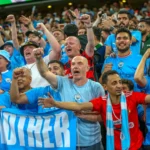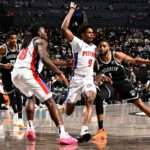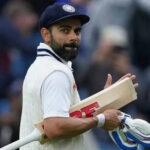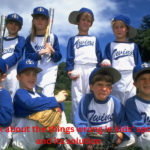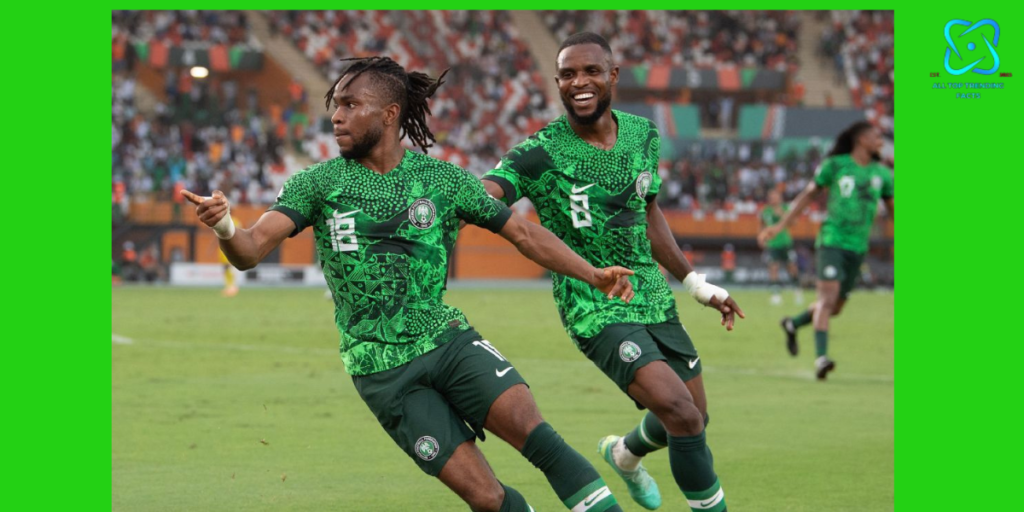
Thanks to his cunning and aggressive abilities, Simon was awarded that accolade. The fact that he moved quickly to avoid being marked, was able to slip by his opponent, maintained his balance, and had the vision to realise that Victor Osimhen had moved two defenders to make room for the ball before Lookman arrived were all examples of this pudding.
Further insights from Nigeria’s significant victory to extend their AFCON run are as follows:
1. A resentment was resolved
Nigeria’s Super Eagles advanced to their 15th semifinal in 19 appearances by settling another score in a competition that seems to have turned into one of them settling scores.
They were easily defeated in the group stage by Côte d’Ivoire, who had previously defeated them in the event on several occasions. Guinea Bissau also arrived in Nigeria and humiliated the Eagles in front of their home supporters. Then there was Cameroon, who in Afcon Final games had given the Super Eagles a string of nasty cuts.
Next on the list was Angola. Since they haven’t played each other since, the Super Eagles needed to make up for one of their greatest heartaches, which occurred in 2005 when the Palancas Negras denied them a World Cup ticket.
Thus, the Super Eagles Class of 2024 felt a certain amount of satisfaction in defeating the Antelopes and keeping them from making it to their first-ever AFCON semifinal.
When Nigerian player Samuel Okwaraji fell and died in August 1989 in Lagos during a 1990 World Cup qualifier, Angola was also the opposing team. In a way, this triumph was also a tribute to the hero who lost his life.
2. What’s wrong with the personnel administration at Peseiro?
Coach Jose Peseiro of Nigeria told reporters at his pre-game press conference that he hoped he could play every player since he had so much faith and confidence in them all. But his performance in this event refutes that assertion.
The Portuguese manager didn’t make his first change until the 80th minute, by which point Angola had already changed four. Alex Iwobi was so exhausted at the time that he was already misplacing passes, therefore that was Alhassan Yusuf for him. It took him an additional seven minutes to substitute Joe Aribo for Frank Onyeka.
It took until the ninetieth minute for Victor Osimhen—who was stooping over—to be substituted out.
If Peseiro claims to have faith in his players, then relying on his starting eleven for an extended period of time during a game when he has competent backups contradicts that claim. He ought to provide the others an opportunity to receive more important minutes. Unless, that is, his behaviours indicate that he doesn’t trust them to handle the game when the lead is small.
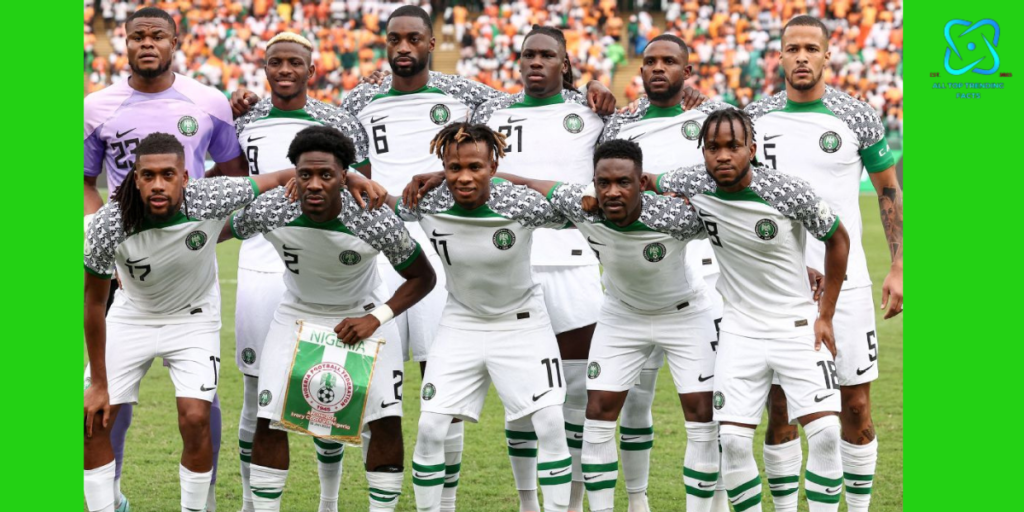
3. When can we expect to see Moffi or Iheanacho?
Don’t fix anything if it ain’t broke. That’s still true now, especially with this Super Eagles team—both in terms of their strategy and the players that carry it out. However, it is astonishing that Kelechi Iheanacho and Terem Moffi are the two players at the top despite having played hardly a minute.
This is a clear continuation of the preceding point. Both Iheanacho and Osimhen are extremely gifted strikers. Although Iheanacho lacks Osimhen’s high press and work rate, his hold-up play and ability to shoot from distance with almost little backlift could be a great help in the closing minutes of the game to keep the defence guessing.
Another advantage that should be helpful in certain situations is Moffi’s speed. However, since the squad is winning, Peseiro has the last say.
4. Osimhen needs it to happen soon.
Victor Osimhen missed numerous chances to record a goal but was not able to do it once more.
He saw goalie Dominique beat away another header after his header from a Frank Onyeka lift in the first half soared high. As the game was winding down, Jonathan Buatu’s block denied him after he had another header disallowed for offside.
Surely, it must eventually pay off for the current African Player of the Year?
He wasn’t the only one, though, getting passed over for opportunities. Every game, the Super Eagles have numerous opportunities, but they never quite seem to materialise. Calvin Bassey and Zaidu Sanusi both tried to head over the bar early in the second half.
Lookman’s goal was sufficient in the end, but the Super Eagles must start taking these chances in the semifinal and, should they advance, the championship game.
5. Nigeria’s defence is their best asset in this AFCON.
Nigeria once again shown exceptional defensive discipline. Angola entered the competition with the second-highest scorer in Gelson and as the competition’s top scorers.
To get at least a goal, their coach vowed to hurl everything against Nigeria. However, the Super Eagles put an end to all of that, as they have done throughout the tournament, giving the Antelopes just two chances on goal during the match, and irritating Gelson to the point that he received a yellow card.
William Troost-Ekong was a general in that back five once more, controlling traffic, stopping, blocking shots, and putting an end to danger.
This team’s relentless defensive effort, which begins at the top, along with their high-octane playing style, may be what wins them the championship.
Click Here for More Sports News : Sports
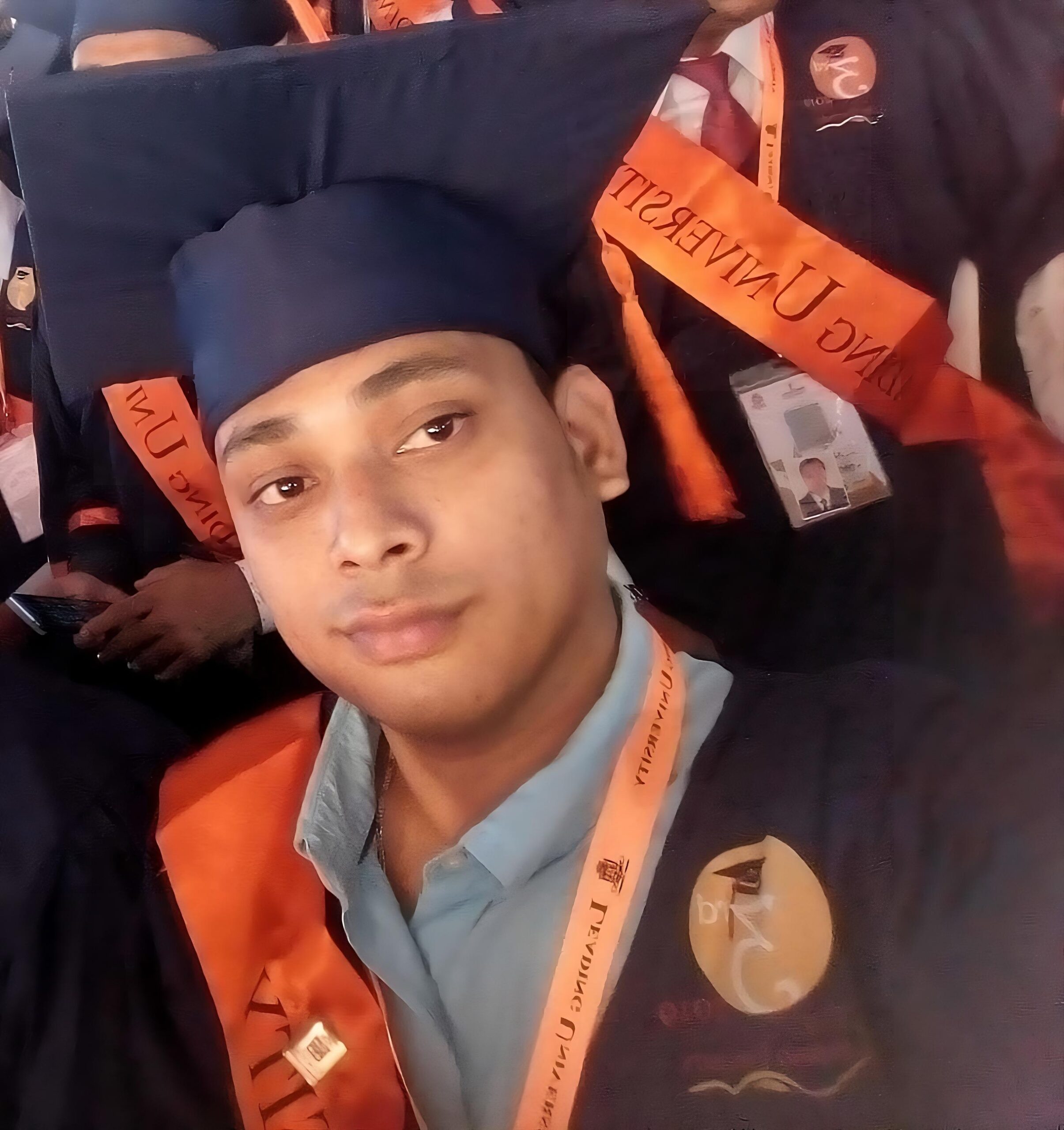
“Hello Everyone” Myself Joydip DN, and I Live in Sylhet And I am a Seasoned Digital Marketer, Accomplished Content Writer, Experienced Blogger And Combines A Wealth of Experience In Online Marketing Trained From Freelancer Lab Academy, With A Strong Linguistic Proficiency, Evident In My Impressive IELTS Band Score. Holding An, MBA With A Major In Management Information System(MIS) From Leading University. I Am(Joydip) Seamlessly Integrates Strategic Business Insights With Technological Acumen To Deliver Organic And Impactful And Results-Driven Content In The Dynamic Digital Landscape. Contact with me: debnathjoydip4@gmail.com”


